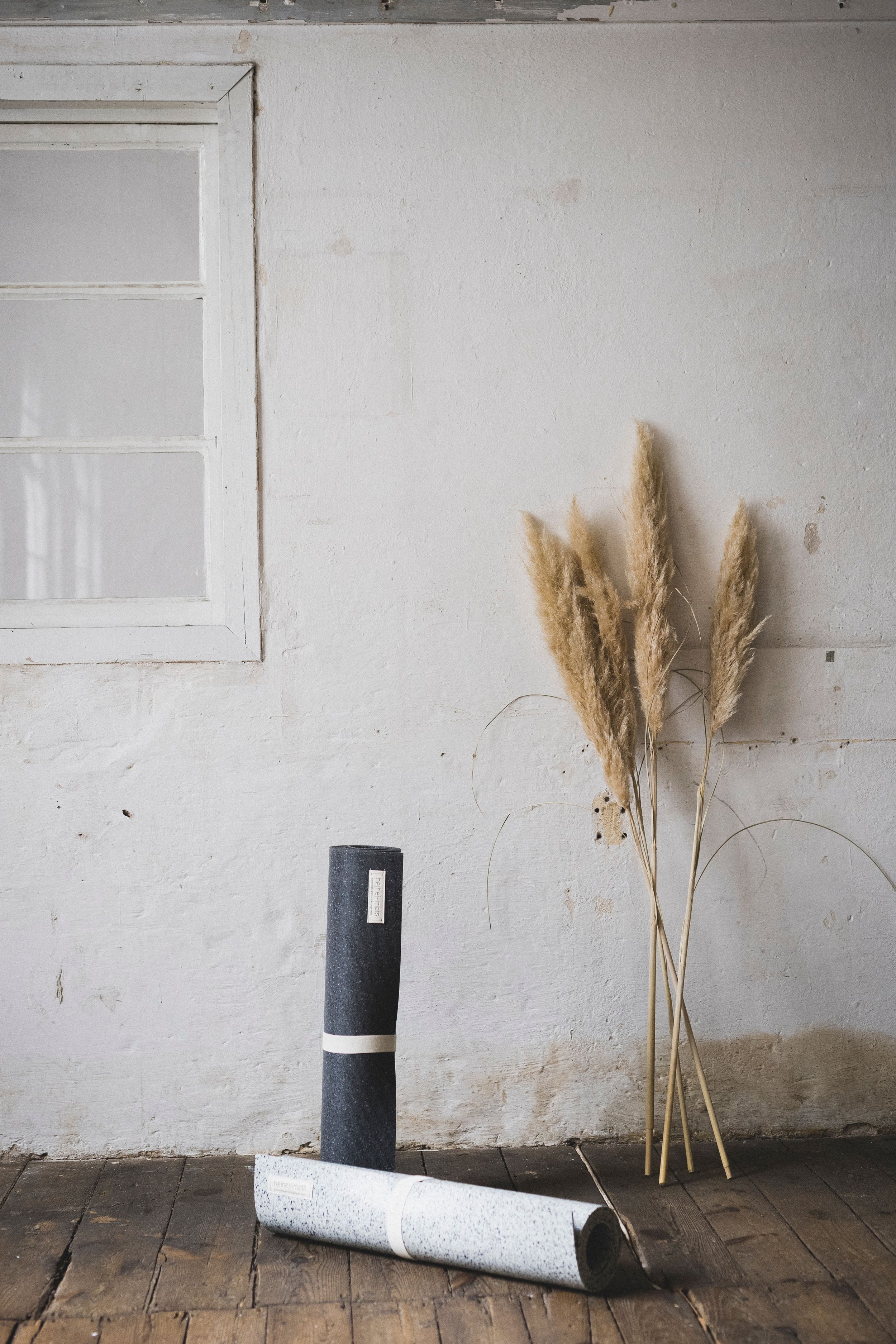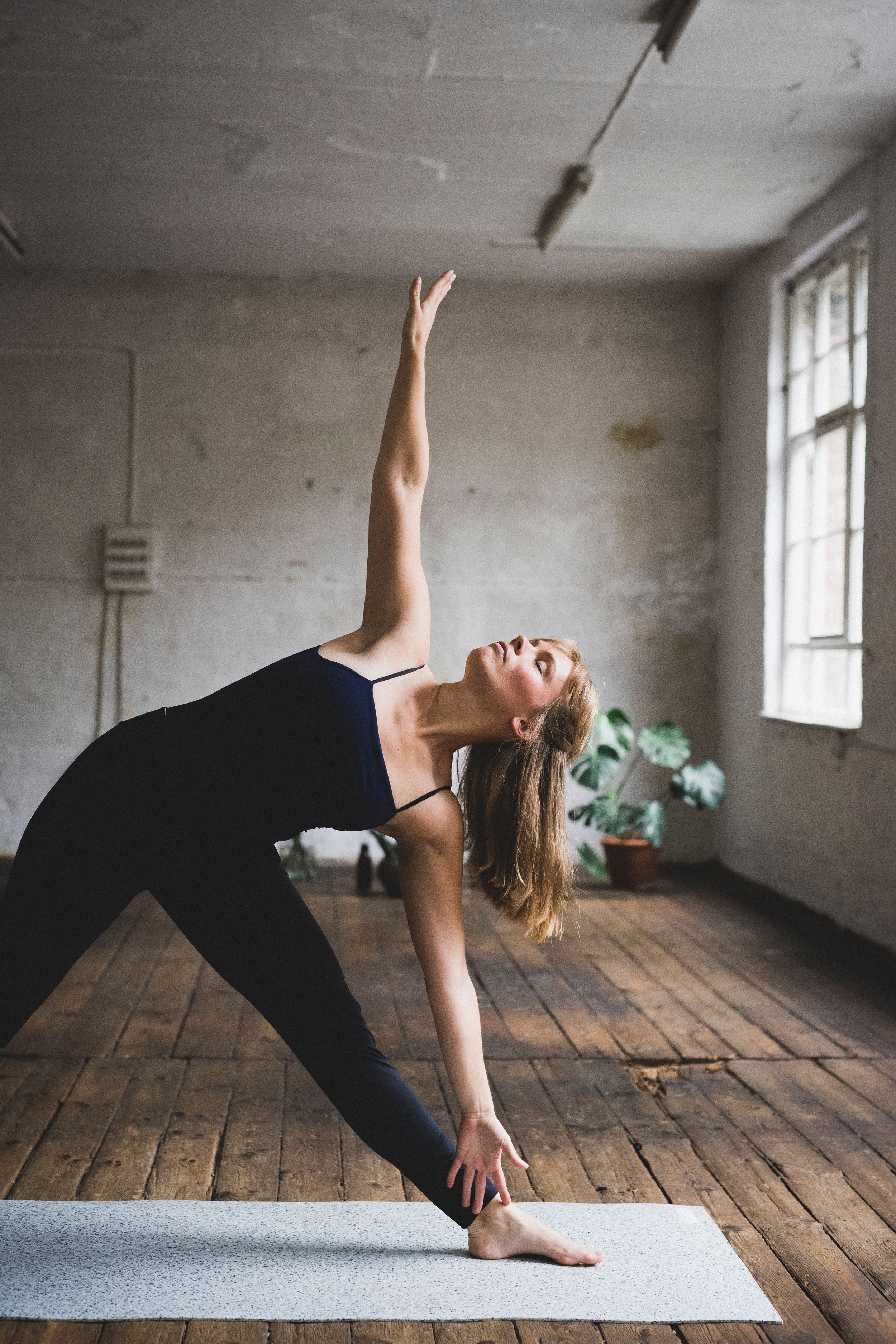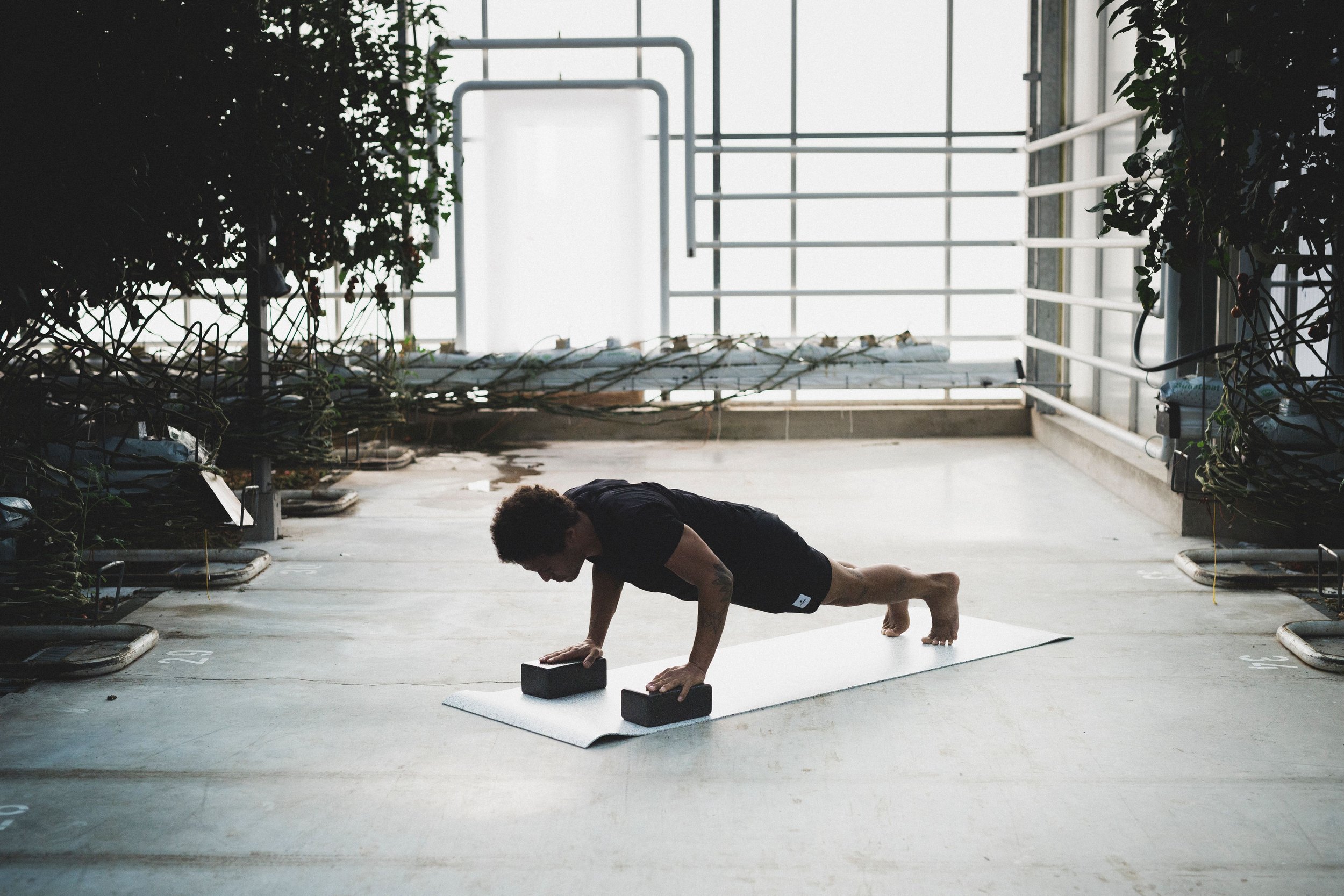Say Hi to hejhej, with the ambition to make yoga more sustainable
Are you a yogi? Does practicing yoga make you feel good? Yoga has a lot of benefits for both the soul and body and it seems to never stop growing. More and more people are joining the yoga movement, perhaps you are too? If so, let us ask you. When you bought your yoga mat, did you think about the story behind it? Just like we at A Sustainable Closet always take in consideration where and how our clothes are produced in order to make a better choice. We’ve met with the brand hej hej, who produces sustainable yoga mats in the south of Germany. Keep reading to find out all the details about hejhej and how these mats came to life.
Hejhej (lovely name), welcome to A Sustainable Closet! Tell us about your story and why you started this amazing yoga brand?
We are really happy to be part of A Sustainable Closet so thank you for having us! Anna and I had the idea for hejhej during our Master’s Programme in Sustainability Management in Malmö. We were visiting an art exhibition and a Turkish artist had an artwork about yogis where she accused them to act hypocritically since most of them believe to live a sustainable lifestyle and still practice yoga on a harmful yoga mat. Anna and I felt really caught. We also thought that we had already integrated sustainability a lot into our daily life, we were also studying sustainability management but so far have never thought about our yoga mats. We researched and wanted to buy a fully sustainable yoga mat for ourselves but we’re really disappointed since there just was no mat that fulfilled our sustainability criteria. So we decided we wanted to change that and we wanted to create a fully sustainable and closed-loop yoga mat.
We are curious about the yoga mats, how and where are they produced, where do you source the material from?
Our yoga mats are designed in line with the circular economy. This means that for the production we use resources that already exist in abundance on the planet, to be specific we use off-cuts naturally occurring in the foaming industry. These off-cuts are recycled and we use them to produce our yoga mats. At the end of the product’s lifespan, the yoga mats are recyclable so we can take them back, and use the materials for creating new yoga mats or yoga blocks (the blocks are made out of the same material). We produce all our yoga equipment in the South of Germany, besides our eye-pillow, this one is produced in cooperation with a social workplace for women in Kenya. We also cooperate closely with workplaces for people with disabilities where our yoga products are packed, stored, and shipped to our customers.
Who is the typical hejhej customer?
They value sustainability. The heart of hejhej is sustainability and we decide every little detail as sustainably as possible. So our customers mostly buy our products because they really want to buy a fully sustainable product. Of course, our customers mostly do yoga and besides that, it is really different and we also want to target all kinds of people.
Where can one buy their next sustainable yoga mat?
You can order them online on our webshop and we have some local partners in different cities (mostly in Germany but also in some other countries). In case you know further shops where you can see our hejhej-products we would be happy if you want to let us know so we could approach them.
Where do you find inspiration?
When being in nature. Nature inspired us a lot to start hejhej because this is what we want to protect. Our planet is so fragile and we all really need to change our lives in order to keep this beautiful nature as it is. So I really love to do sports in nature like hiking, mountain or road cycling, swimming in lakes or the ocean, or just sitting outdoors and meditating.
What has been and are the major challenges of starting your own business?
Financing a sustainable start-up is a huge challenge. We don’t have investors or any external capital and are fully self-financed. This is great and we don’t want to change that because we don’t need to explain ourselves and can decide everything the way we want to. However, it also is a really big challenge since we are really dependent on selling our products in order to pre-finance new production rounds or the development of new products. It’s a rather slow way of growing a business.
What has been and are the largest gain?
We are just so grateful to be able to work on hejhej full-time. We believe that in the future all products need to be created closed-loop and being able to do this already feels so great. We also really love the flexibility and working completely remotely from different cities and countries. So there definitely are challenges but still, founding a sustainable business is the best you can do.
What do you think needs to change in the yoga industry to make it more sustainable?
Companies need to start producing sustainable products – this means taking ecological as well as social sustainability into all decisions that need to be made when producing yoga products. So far this is barely the case in the yoga industry. Some companies communicate to offer “sustainable” products, for example, yoga mats made out of natural rubber. However, if you look with more detail into it, you can find that this actually is not really sustainable. The materials come from Asia, rainforests need to be cut down to plant these rubber plantations. In the yoga industry, the prices for the yoga equipment also are crazy low. Companies offer yoga mats for 20€ at discounters and you have to ask yourself how this can be possible to create yoga mats for such cheap prices. Someone somewhere along the supply chain does pay the price for this – people and the planet. We actually just wrote about this topic in one of our last Instagram posts. There we also talk about huge companies offering yoga studios all their equipment for free. Have a short read about it here and we just really hope that the yoga as well as all the other industries will change.
Best thing about hejhej?
All products are closed-loop, local & fair production, and pure & minimalistic design.
What's up next?
A super cool project is coming up next, we have not talked about it at all so far but one thing we can already tell you: watch out for hejhej on Youtube. You can sign up for our newsletter here to not miss it.
Basic facts:
Based in: Nuremberg (Germany)
Founded in: 2017
Founded by: Anna Souvignier & Sophie Zepnik
Stores: Website
Price range: Yoga equipment starts at 29€ and the yoga mats cost 129€.





